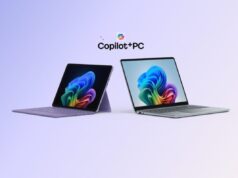
Quantum computing is a rapidly developing field with the potential to revolutionize many industries, including mobility. Quantum computers are able to solve problems that are intractable for classical computers, which could lead to breakthroughs in areas such as traffic optimization, vehicle design, and cybersecurity.
Here are some of the ways that quantum computing could impact the future of mobility:
- Traffic optimization: Quantum computers could be used to develop new algorithms for traffic optimization that could significantly reduce congestion and improve travel times. For example, quantum computers could be used to simulate traffic flows in real time and identify the most efficient routes for vehicles.
- Vehicle design: Quantum computers could be used to design new vehicles that are more fuel-efficient, safer, and more comfortable. For example, quantum computers could be used to optimize the aerodynamics of vehicles or to design new materials for vehicle components.
- Cybersecurity: Quantum computers could be used to develop new algorithms for cracking encryption codes that are currently considered unbreakable. This could pose a serious threat to the security of autonomous vehicles and other connected mobility systems. However, quantum computers could also be used to develop new encryption algorithms that are resistant to quantum attack.
Here are some of the companies and organizations that are currently working on quantum computing applications for mobility:
- Volkswagen: Volkswagen is developing a quantum routing algorithm that could be used to optimize traffic flows and reduce congestion.
- Bosch: Bosch is developing a quantum algorithm for optimizing the charging of electric vehicles.
- Intel: Intel is developing a quantum computing platform for automotive applications.
- McKinsey & Company: McKinsey & Company is conducting research on the potential impact of quantum computing on the mobility sector.
The future of quantum computing for mobility is bright. As quantum computers become more powerful and accessible, we can expect to see a wide range of new applications emerge.
Here are some specific pointers on how quantum computing could impact the future of mobility:
- Quantum computers could be used to develop new materials for batteries and other vehicle components that are lighter, stronger, and more durable.
- Quantum computers could be used to design new traffic control systems that are more efficient and less prone to congestion.
- Quantum computers could be used to develop new algorithms for autonomous driving that are safer and more reliable.
- Quantum computers could be used to develop new cybersecurity solutions that are resistant to quantum attack.
Overall, quantum computing has the potential to revolutionize the mobility sector in a number of ways. By solving complex problems that are currently intractable for classical computers, quantum computers could help to make transportation more efficient, safer, and more sustainable.
Conclusion
Quantum computing is a rapidly developing field with the potential to revolutionize many industries, including mobility. While quantum computers are still in their early stages of development, companies and organizations around the world are already working on quantum computing applications for mobility.
As quantum computers become more powerful and accessible, we can expect to see a wide range of new applications emerge. Quantum computing could be used to improve traffic optimization, vehicle design, cybersecurity, and more.
The future of quantum computing for mobility is bright, and it is an exciting time to be involved in this field.










